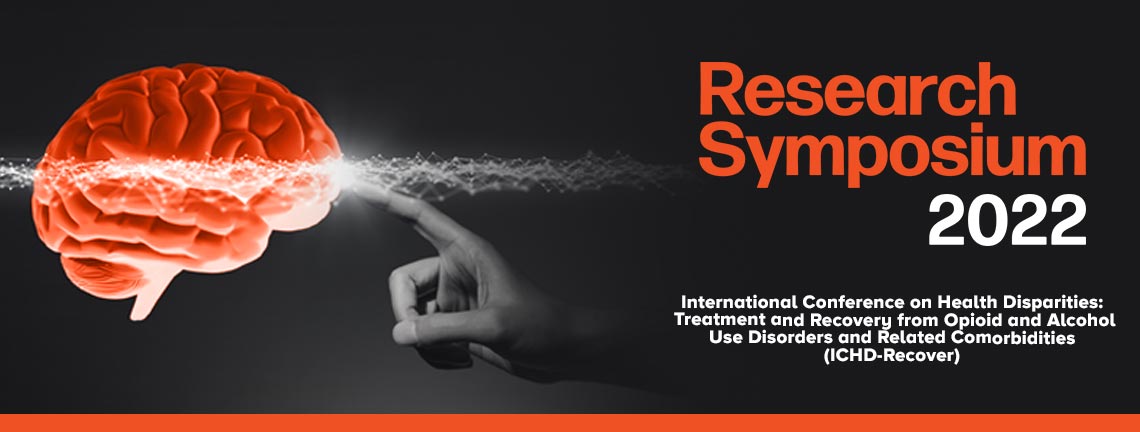
Talks
Presentation Type
Oral Presentation
Discipline Track
Community/Public Health
Abstract Type
Research/Clinical
Abstract
Background: The COVID-19 pandemic shut down the entire world. This caused universities and addiction recovery programs to get creative on how to reach community needs. Many professors found themselves teaching online for the first time. Apps for mental health and addiction recovery programs grew exponentially. Information on how adequate virtual programs perform are mixed. We investigate the extent to which a virtual program can increase health literacy. To accomplish this, the professors of the sociology program launched the Recovery and Resilience Academy (RnR Academy). The aim of RnR Academy is to serve as an outreach and educational center for the people of Southeast Texas who want to learn how to be better prepared to overcome adversity.
Methods: In March 2022, the Mayor of Beaumont, TX along with professors from the sociology program at Lamar University led a virtual townhall. The aim of the townhall was to teach the community about invisible illnesses. Invisible illnesses are related to sicknesses that are not visible to the human eye. For example, chronic pain, mental health and addictions are some of the many illnesses that fall under the invisible illness category. In the townhall held by RnR Academy, health topics included mental health, chronic Lyme disease, long COVID, and health related problems from living in mold invested housing. The townhall was 100% virtual. Members of the local community were invited to complete a pre-test (n=48), following this they watched four 10-minute presentations, and after the presentations completed a post-test (n=33).
Results: Results for all health indicators suggest that health literacy slightly increased. For example, results showed that before community members watched the presentations, only 77.1% had ever heard of long COVID. After watching the presentation, 100% report knowing that COVID-19 can last more than 1-year.
Conclusions: Preliminary findings suggest that even though people are historically accustomed to face-to-face instruction, virtual learning can produce positive outcomes. Rural communities and other hard to reach populations that cannot attend face-to-face meetings might benefit from virtual health education programs. Given that many local programs in rural communities have small numbers or limited access to larger refined programs, launching a virtual education program could be a huge win for addiction recovery programs and initiatives aimed at reducing health disparities.
Academic/Professional Position
Faculty
Recommended Citation
Gage Witvliet, Margot and Chang, Chiung-Fang, "The impact of virtual learning on health literacy: lessons from a virtual townhall held by the Lamar University Recovery and Resilience Academy" (2023). Research Symposium. 34.
https://scholarworks.utrgv.edu/somrs/2022/talks/34
The impact of virtual learning on health literacy: lessons from a virtual townhall held by the Lamar University Recovery and Resilience Academy
Background: The COVID-19 pandemic shut down the entire world. This caused universities and addiction recovery programs to get creative on how to reach community needs. Many professors found themselves teaching online for the first time. Apps for mental health and addiction recovery programs grew exponentially. Information on how adequate virtual programs perform are mixed. We investigate the extent to which a virtual program can increase health literacy. To accomplish this, the professors of the sociology program launched the Recovery and Resilience Academy (RnR Academy). The aim of RnR Academy is to serve as an outreach and educational center for the people of Southeast Texas who want to learn how to be better prepared to overcome adversity.
Methods: In March 2022, the Mayor of Beaumont, TX along with professors from the sociology program at Lamar University led a virtual townhall. The aim of the townhall was to teach the community about invisible illnesses. Invisible illnesses are related to sicknesses that are not visible to the human eye. For example, chronic pain, mental health and addictions are some of the many illnesses that fall under the invisible illness category. In the townhall held by RnR Academy, health topics included mental health, chronic Lyme disease, long COVID, and health related problems from living in mold invested housing. The townhall was 100% virtual. Members of the local community were invited to complete a pre-test (n=48), following this they watched four 10-minute presentations, and after the presentations completed a post-test (n=33).
Results: Results for all health indicators suggest that health literacy slightly increased. For example, results showed that before community members watched the presentations, only 77.1% had ever heard of long COVID. After watching the presentation, 100% report knowing that COVID-19 can last more than 1-year.
Conclusions: Preliminary findings suggest that even though people are historically accustomed to face-to-face instruction, virtual learning can produce positive outcomes. Rural communities and other hard to reach populations that cannot attend face-to-face meetings might benefit from virtual health education programs. Given that many local programs in rural communities have small numbers or limited access to larger refined programs, launching a virtual education program could be a huge win for addiction recovery programs and initiatives aimed at reducing health disparities.

